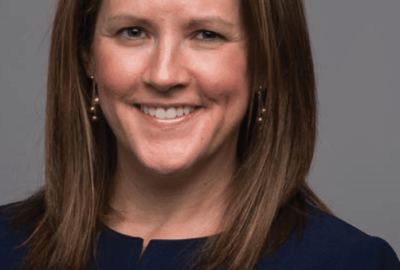
Customer’s voice may be key ingredient to make shared services work
The Shared Services Coalition, the National Academy of Public Administration and the Senior Executives Association will release a new report highlighting lessons...
A new report on shared services from three good government groups shines the light on an ingredient that has been missing from most of these efforts for the last 30 years.
In interviews and discussions over the last year, the three groups, the Shared Services Coalition, the National Academy of Public Administration and the Senior Executives Association, found including the voice of the customer is vital to ensuring shared services are successful.
“We have been working primarily through the administrative staffs who are most directly involved in shared services planning and implementation,” said John Marshall, founder and CEO of the Shared Services Leadership Coalition, in an interview with Federal News Network. “But there was the end user who was often not engaged and not actively supportive, but whose support is a critical ingredient that has been missing,”
SEA, SSLC and NAPA made eight recommendations for how the Trump administration can find more success moving to shared services and avoid the potholes the previous five administrations have fallen into.
While many of the suggestions are part of the common refrain for most projects, the need to bring in the voice of the customer is one that hasn’t been addressed in great detail before.
“While the ideas behind a shift towards shared services will come from the top-down, success is reliant upon the customer, from the bottom-up. A successful shared services framework is developed with the concerns and needs of the customer in mind,” the three groups said in an executive summary. “As discussed in the April 5th seminar, ‘one size doesn’t fit all,’ and the right balance must be struck between choice and scale. Shared services implementation must fit the culture of the agency, while leaving room for the agency to adapt to the new model.”
The three groups will release the shared services report Dec. 13 at the Senior Executives Association annual leadership summit in Washington, D.C.
PMA goals to be updated
The Office of Management and Budget and the Unified Shared Services Management office recognized the need for the voice of the customer as it updates the next iteration of the President’s Management Agenda goals in the next week or so. The new goals will include the requirement for agencies to participate in the development of standards so agencies can have a big say in what the future capabilities will be for human resources or financial management or any area where shared services could work.
Additionally, the new strategy will give every agency the opportunity to declare some level of success, whether it’s through the participation of standards or through the adoption of existing services. The goal, OMB and the USSM said, is to highlight what those standards or services are, or whether the agency is thinking through the plan to adopt new centralized services.
Terry Gerton, president of the National Academy for Public Administration, said the year-long workshops helped bring in lessons learned and practical understandings of how to move to shared services, particularly for the end users. There have been more examples of failed shared services attempts than successful ones.
Many observers point to the payroll consolidation effort starting in 2003 as the best example of a success, while also highlighting the failures at the Homeland Security Department, the Labor Department and the Veterans Affairs Department.
Marshall said the biggest change over the last 30 years is around the technology, but the challenges of culture, leadership and staying focused on the mission have been around for the last three decades.
“The one thing that was a little different was the focus on the changing nature of government work and the need to prepare the workforce for that kind of change. There was a lot of discussion about the responsibility of the executing organization to communicate to the receiving organization, the customer, that this is not about reducing the workforce,” Gerton said. “In fact, it’s about changing from low-value work to high-value work, and there is more demand for more people to do the high value work. So in the process of shared services, we have to talk about reskilling in order to make it really effective.”
Commerce’s example is a good one
Gerton said leaders must communicate how the change will impact both the people who do the transactions and the employees who will be receiving the new services.
She said shared services also are an essential piece for other cross-agency PMA goals, including reducing improper payments and increasing timeliness of payments.
“We’ve got to implement new processes, new technologies and new systems and as we do that, we’ve got to move the workforce along with it to be effective users and consumers of the new systems,” Gerton said. “Add on to that, the skills of the analytics on the back end to make sure we are doing the process improvement that we need to execute.”
Marshall pointed to the Commerce Department’s move to shared services as a good model for others in government to follow. Commerce consolidated back office operations around human resources, technology services and acquisition over the last three years.
“They are on the leading edge of going toward transforming shared services into as-a-service, consumption based business model by bringing in commercial providers and outsourcing a large part of it,” Marshall said. “That is another missing ingredient that we think is necessary to accelerate the move to shared services. We need to get away government dominated and delivered shared services and open up more opportunities for the commercial sector to come in and provide these services in a standards based business environment that is governed by OMB and GSA.”
Gerton added the most practical advice from the workshop was around acquisition and the tools by which agencies can acquire shared services.
Both Marshall and Gerton say the ultimate reason shared services are successful comes back to long-term commitment by leadership, both at the top of the agency and on the ground. NAPA, SEA and SSLC found having the same senior manager involved in all phases of the project will lead to a greater likelihood of success.
Copyright © 2025 Federal News Network. All rights reserved. This website is not intended for users located within the European Economic Area.
Jason Miller is executive editor of Federal News Network and directs news coverage on the people, policy and programs of the federal government.
Follow @jmillerWFED
Related Stories





